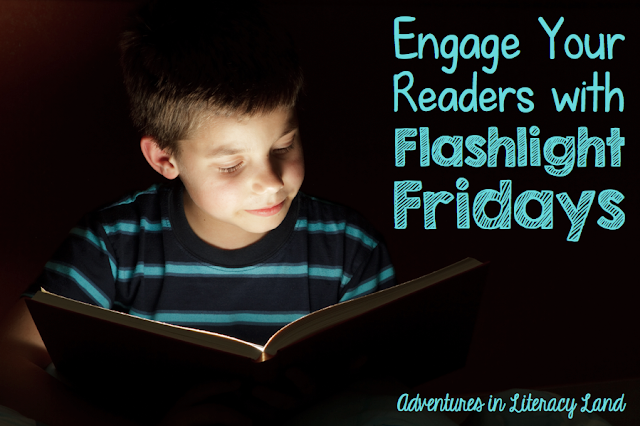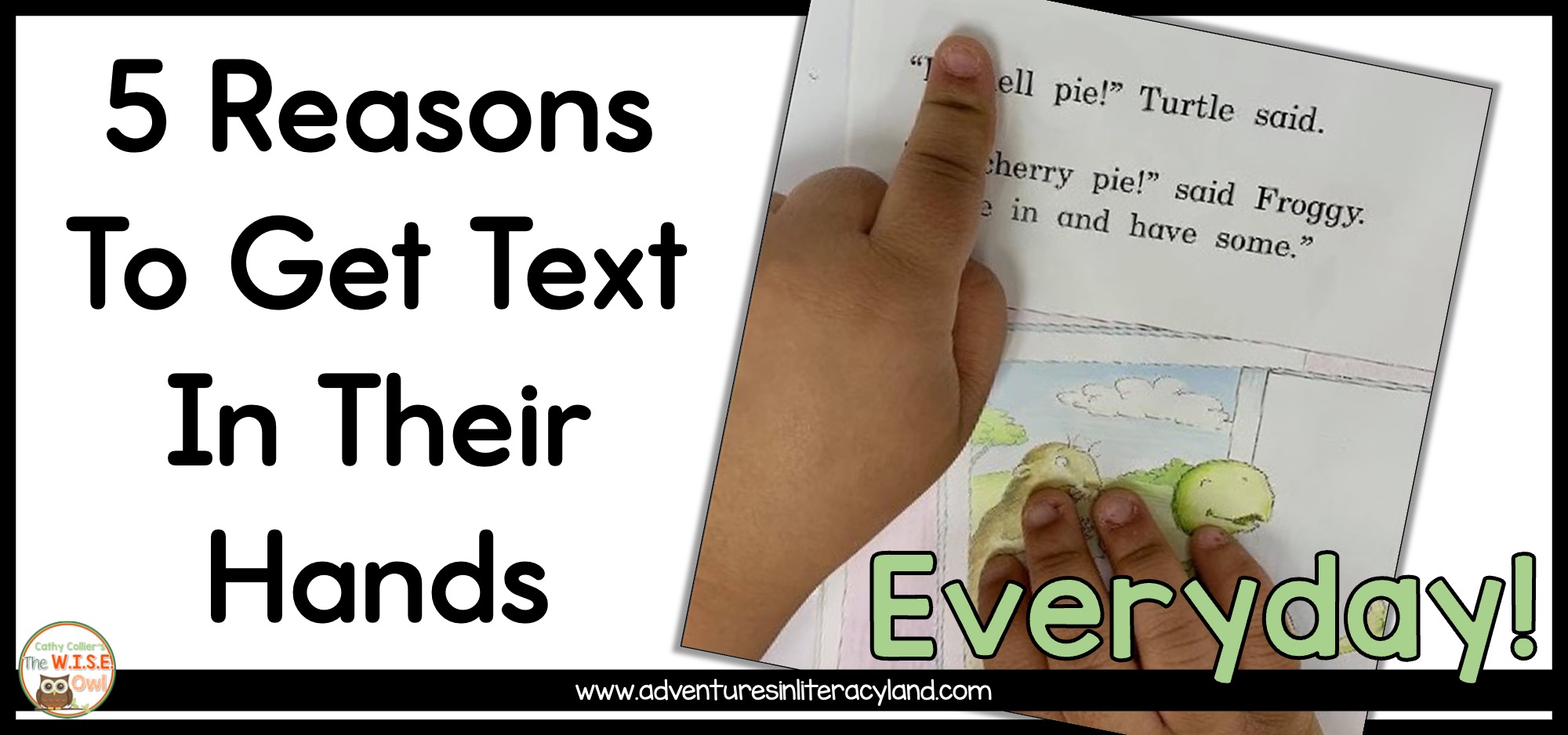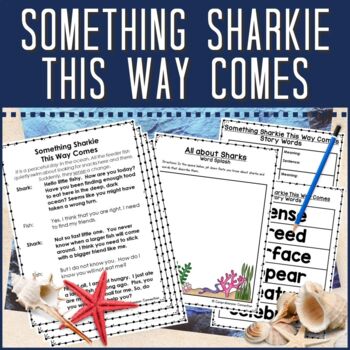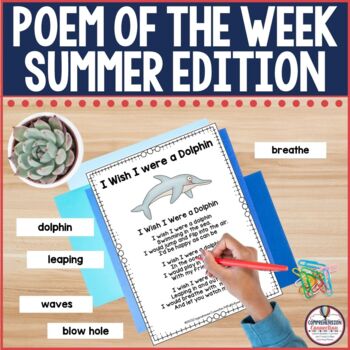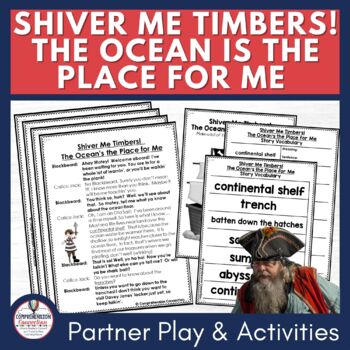
Engage Your Readers with Flashlight Fridays
Our literacy team took a new direction this year with our school-wide reading incentive program. We wanted to establish a literacy-rich environment where all students were given the opportunity to participate in literacy celebrations. We did away with required nightly reading minutes, signed reading logs, and rewards given only to students who completed the reading challenge. Alternatively, we focused on creating opportunities for students to enjoy authentic reading, writing, and discussions.
We planned several school-wide activities throughout the year to promote literacy: graffiti walls, book swaps, mystery readers, and Flashlight Fridays. For today's post, let's take a look at Flashlight Fridays.

Reading Wellness: A Summer Book Study
For many of us, summer vacation is officially underway! Our days will soon be filled with fun, sun, rest, relaxation, friends, family, travel, and maybe even a book or two. ;)
Here at Adventures in Literacy Land we've been planning our summer book study. We're so excited to announce that the book we've chosen is...
Reading Wellness: Lessons in Independence and Proficiency by Burkins and Yaris.
Reading Wellness offers teachers a series of lessons to help children read closely and carefully while still honoring their interests as readers. Join us in July as we learn how to instill confidence, curiosity, and the joy of reading in our students.
The book is available for purchase or to read online {for free} through Stenhouse.
Not only can you comment here on the blog, but you can also link up your posts throughout the week with your own blog posts and thoughts.
We can't wait to hear your thoughts on Reading Wellness!
Here at Adventures in Literacy Land we've been planning our summer book study. We're so excited to announce that the book we've chosen is...
Reading Wellness: Lessons in Independence and Proficiency by Burkins and Yaris.
Reading Wellness offers teachers a series of lessons to help children read closely and carefully while still honoring their interests as readers. Join us in July as we learn how to instill confidence, curiosity, and the joy of reading in our students.
The book is available for purchase or to read online {for free} through Stenhouse.
Not only can you comment here on the blog, but you can also link up your posts throughout the week with your own blog posts and thoughts.
We can't wait to hear your thoughts on Reading Wellness!

Epic...There's More To It!
 Epic. I am a HUGE fan. Have you tried it out? I know there have been many great posts about the features and benefits of Epic. And I want to certainly echo those points here; however, this year Epic added some additional features and a great summer incentive to families. I can't wait to share all this information with you!
Epic. I am a HUGE fan. Have you tried it out? I know there have been many great posts about the features and benefits of Epic. And I want to certainly echo those points here; however, this year Epic added some additional features and a great summer incentive to families. I can't wait to share all this information with you!(If you have not used Epic, check out Jennifer's post about how to set it up-Here!)
But first things first...after a year of using Epic in the classroom and at home, what did I observe?
- Excitement--students would be so excited to share with me the books that they found.
- Motivation--Epic provides such high quality texts that my students were so motivated to keep reading and exploring new texts.
- Independence--the app is really kid-friendly, easy to use, and navigate. This means more independent students!
- It is free for teachers!
- Each child has their own account.
- Nonfiction to fiction ratio is great.
- Books are based on student interest.
- Some books are read aloud to students.
- I can see who is really trying to read the books and who is just flipping though them.
- New books are constantly being added.
What's new to Epic? As of April 28th, students can access Educational Videos on Epic. And they are popular!! The video that I heard most often at the end of year was "Money" from Flocabulary.
When I doing some research on their site, you do have some controls over these videos because they can be pretty exciting and hard to stop watching. You can check out that information HERE.
Another addition that occurred in April was the Home Access Program. Teachers can give their families access to Epic at home for one month FREE without providing any credit card information. This is wonderful because I am always looking for more ways to add to their home library!
Right now Epic is providing free access to families through July 31st with the hope that this will help with the summer slide! Yes!! Just direct your families to www.getepic.com/summer and they can read, read, read until July 31st!!
Do you have a favorite feature from Epic? I would love to hear about it!!

Promoting a Reading Challenge

Let's Get Spelling!
Hello and welcome to Adventures in Literacy Land!
I'm Pixie Anne from Growing Little Learners and I have a round up of some of my favourite activities for independent spelling work today. These are all fun, practical ideas I've collected from my many hours of professional development on pinterest that I have used and found my little learners to enjoy. So thank you to all those who originally shared - you can link to the original sites by clicking on any of the images.
Many of you may be on your summer break already. Unfortunately, after this one week off, we still have close to 8 weeks left until we break up...8 WEEKS! If you are on your break already, these may be some ideas you can use with your own little ones at home, or you can store them up and pin them yourself for when when you're back to school.
Here we go...
These 2 activities I love because they build those all important fine motor skills too. Whilst the picture above (right) shows numbers in that tub of water, I obviously used it with plastic letters. I had small groups of 2-3 children work together with our key words on flashcards. One child chose the card and read the word aloud, and the other had to build it. They then checked together and rewarded each other with counters if they got it right. Most counters wins!
I love using scrabble tiles! They are so cheap to buy in bulk on ebay and have so many uses (I like to use them to craft a lot too). I'm also a big fan of resources I don't have to go to too much effort to make. I have made my own sets of lolly sticks and cups for example with letters on in the past but have to say that pre-made resources like magnetic letters and scrabble tiles will always win with me! I'm also guilty of always buying a pack of the plastic eggs when I see them because they are just so versatile in the classroom and when I saw this idea (combined with the scrabble tiles), I had to try it! The kids love it and it keeps them busy for ages unscrambling and building those key words!
These ideas are a favourite because they also help us work on our letter formation and handwriting. Building words and rearranging letters is fun and definitely worthwhile, but actually writing the words out builds that all important muscle memory. The sensory aspect of writing in salt, rice, sand, paint, shaving foam, play dough etc. always engages those in my class who are more reluctant to pick up a pencil and hate copying out their spellings. They love the reward of being able to draw or write whatever they like once they have completed the activity or scored a certain number of points for correct spellings too.
There is a great post by Lisa from Growing Firsties on sight word spelling practice and this tic-tac-toe grid has been popular with my class. We also made up our own grid with different ideas (building with the scrabble tiles, magnetic letters for example) and it's an activity we use often at school and copy to send home.
The final idea I wanted to share today was this one from Stephanie at 3rd Grade Thoughts. I made my own version (as I live in the UK and needed different coins!) and love how we get to work on our money total and addition skills while building words. Again, I like my class to work in pairs with one choosing a flashcard with one of our key spellings and reading it aloud to their partner. The partner spells out and builds the word. Together, they then work out the money total. Such great practice and collaboration!
So there you have it. Some of my favourite activities and, more importantly, the favourite activities of those in my class!
I'd love to hear about what works well for your little learners so do leave a comment below.
Thanks for stopping by today!

5 Reasons to Text in their Hands...EVERYDAY!
Teachers know text is the key.
Teachers are quick
to incorporate Read Alouds, both fiction and non-fiction, into lessons for
reading skills, math, science and social studies. We practice words, but we have to make sure we are practicing words in text. Here are 5 reasons.
Practice
If you want a child to be better at piano,
you make them practice. If you want a
child to be better at soccer, you make them practice. If you want to child to be better at dance,
you make them practice. If you want a
child to be better at reading, you make them practice. You would not give them a piece to play on
the piano ONCE. You would not have them
kick a soccer ball ONCE. WHY would you expect a student to become a
successful reader with one glance at a book.
Students need to have the books from small group at their disposal to
develop comprehension, fluency and expression. They need practice every day...with new books every day! I provided each student with a gallon-sized Ziploc(R) bag. Each day they get give me the oldest book in their bag and they get a new book. There are always 5 books in their bags. They need LOTS and LOTS of exposure to text on their level! Practice makes permanent.
Practice with Known or Familiar Words
Word
wall words or sight words CANNOT be learned in isolation. Well, they can be…but, why would you? When students are just beginning to connect
letters to sounds and sounds to words every connection made clear makes an impact
on their learning. Typically a
word or two is repeated in predictable text can not only provide further
practice with fluency, students are practicing sight words on every page. As they become more and more familiar with
these books the sight words become easily recognized and ingrained.
Responsibility
Responsibility
is another key skill for early learners.
Giving them the responsibility of their book baggie allows them to have
a part in their learning. They need to
bring the book baggie to the small group table.
They need to make sure their book baggie is put in the proper
place. They need to make sure their
books are kept in the baggie.
Responsibility is another key skill for early learners. Giving them the responsibility of their book baggie allows them to have a part in their learning. They need to bring the book baggie to the small group table. They need to make sure their book baggie is put in the proper place. They need to make sure their books are kept in the baggie.
Independence
Independence
is one of the most important skills students can acquire through books. After a small group lesson students keep the
book in their book baggie (a Ziploc® bag with their name). These bags are kept in a specific place in
the room. When students are finished with
their work, they can get their book baggie and sit in the classroom library to
read. They know how, when, and where to
read their books and it’s up to them to do it.
LOVE
Finally,
putting books in the hands EVERYDAY creates a routine of reading. When the routine is created a love of reading
can grow. Students who know they will
read every day and they will be successful every day. Success feels good…so reading will feel good,
too. AND THEN...love will grow!
Give them the books. Don't be afraid! It will make all the difference!

Surf, Sand, and Fun for the End of the Year
Summer is not far off, and that means you are likely packing up your classroom and winding things down. Your mind is on vacation, and guess what. Your students' minds are on it too, so why not embrace it? Let's take an ocean themed classroom adventure with a staycation right in your classroom.
Best Books with an Ocean Theme
 Of all the books I chose to feature in today's post, there are a few that I truly just love. The first, Hello Ocean, has to be one of the most descriptive books available. If you are teaching figurative language, put this one on the list. The illustrations are just so real looking and help young readers who haven't been to the ocean actually feel like they have been. Pam Munoz Ryan selects just the right words to eloquently describe aspects of the ocean.
Of all the books I chose to feature in today's post, there are a few that I truly just love. The first, Hello Ocean, has to be one of the most descriptive books available. If you are teaching figurative language, put this one on the list. The illustrations are just so real looking and help young readers who haven't been to the ocean actually feel like they have been. Pam Munoz Ryan selects just the right words to eloquently describe aspects of the ocean. Riptide by Francis Weller is another favorite of mine. I am a dog lover, and our first dog was a Golden Retriever that looked just like Riptide. Caution though...this one has a really intense part. It is a true story, and your students will be on the edge of their seats with it. The reading level of it is mid third, and I used it in conjunction with a writing prompt focused on voice. The plot is very engaging, so if you're working on cause/effect relationships or plot development, this is a great choice.
Riptide by Francis Weller is another favorite of mine. I am a dog lover, and our first dog was a Golden Retriever that looked just like Riptide. Caution though...this one has a really intense part. It is a true story, and your students will be on the edge of their seats with it. The reading level of it is mid third, and I used it in conjunction with a writing prompt focused on voice. The plot is very engaging, so if you're working on cause/effect relationships or plot development, this is a great choice. Have you read the Scaredy Squirrel books? Scaredy Squirrel at the Beach is one of the cutest books. It would be a lot of fun for students to write their own Scaredy Squirrel stories or make a safety list for him or for other beach travelers. It is written with lots of voice/thought bubbles, so you might also follow that format with a cartoon strip.
Have you read the Scaredy Squirrel books? Scaredy Squirrel at the Beach is one of the cutest books. It would be a lot of fun for students to write their own Scaredy Squirrel stories or make a safety list for him or for other beach travelers. It is written with lots of voice/thought bubbles, so you might also follow that format with a cartoon strip.
Fun Activities to Check Out
Oh goodness, the activities are plentiful for an ocean theme. You can easily fill several weeks with writing extensions, science experiences and oodles of crafts. I found so many great activities on Pinterest, and this board will be growing. Whether you're ending the school year with an ocean theme, using it during summer school, or at the beginning of the year, you have lots of options to choose from.
Of the pins I added, I certainly have a few favorites. I just love watercolor artwork, and the two I pinned would be easy to make. My daughter made a few like these in an art camp one summer, and I still have them framed in her bathroom.
Along with art projects, there are many different science experiments you might try. The Ocean in a Bottle experiment was pinned quite a bit with different versions, and for our standards, creating a map of the ocean floor may make the terms a little easier to understand. I also love the paint swatch and flipbooks for showing how light travels through the ocean and impacts plant and animal life.
Finally, there are many writing options as well. The one I loved most came from 2nd Grade Shenanigans. I bet her kids loved the final products, and I am sure their parents kept them as a keepsake. Too fun!
Best Websites for Ocean Exploration
Take a virtual field trip to the beach with this website. Walk through all aspects of the ocean and learn lots of science concepts too.
Wow, this website would have been a tremendous asset a few months ago when I was working on oceanography with our fifth graders. Students can travel to the ocean floor to discover what is there and what the environment is like. Cool!

This last website is sponsored by PBS, so you know the footage and quality will be top notch. The Odyssey travels to the ocean floor with an underwater camera mounted on it. Again, students can get a true feel of what it's like on the ocean floor.
Before I sign off, I will share the links to a few of my Ocean themed resources. I will also share one of my ocean themed poems you can use to work on fluency with your students during your ocean themed staycation.

Now, don't forget to download your copy of the [Ocean Fun freebie]. Have a wonderful Memorial holiday next weekend, and just think...only a short time til Summer!!!

Subscribe to:
Posts (Atom)

